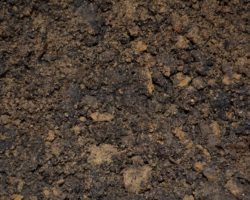
He lay as if alive. It seemed that if they waited just a little longer, he would open his eyes. He would sit up. He would smile at them – their firstborn, with his mother’s nose and build and his father’s way of pausing before he spoke, of losing himself in his work.
But he did not open his eyes.
They had wept. It was a different sorrow than they had known, though they had known loss, deep, earth-shattering loss, before this. The father had been the one to find his son’s body in the field, with the flies buzzing around it, with the blood soaking into the ground.
He had wanted to hide the body from his wife, to spare her this new sorrow. He almost buried his son there, in the field, so she wouldn’t have to look at it.
The tears burned. Their souls were dead within them.
The father dug into the dirt. That was all his son was now – dirt. It had seemed as if his son would live forever, that the flame in his eye and the vitality of his movements were fueled by unquenchable life. When he had been born, he had been a miracle in their harsh world.
As the father dug, his wife prayed. In one long, honest outpouring, she questioned the Lord and asked forgiveness and praised him and wept with words unspoken since the creation of the world. He joined her and even as they spoke, they sang, and their tears watered the dirt.
Into the earth, they lowered their son. In the earth he lay as if alive, as if a word could raise him. No, to dust he would return. With grim resolve, the father buried his son, knowing it was his fault.
They stood, husband and wife, in silence when it was finished.
They did not know how to move on from this moment. But time continued, and God was good. That they knew. They felt a lightening of their burden and knew he had not left them.
When they had gone again to their dwelling, as the sun set in the clear sky and shadows grew long, another figure approached. He moved slowly, silently, until he knelt before the fresh dirt.
He began to dig, using his hands. He dug determinedly as the darkness grew. He breathed heavily, angrily, as he scraped the soil up with fingers already stained with dirt, with nails already black with dirt.
The moon shone bright and the stars emerged in clusters before he touched the face of the dead man with his fingers. Carefully, now, he excavated the rest of the features – the nose, eyes, cheeks, chin, neck, ears, hair. He dusted-off the stiff skin. He ran his fingers slowly, reverently, along the lines of the empty visage.
“I have proved all,” he said, trembling. “Man is but dust.” He looked up at the moon, as if beseeching the heavens. Upon his face was a strange mark. He spoke now to the body. “I know now his worth, that he spared me when I did not spare you.”
He looked at the dwelling of his parents. His face grew grim.
He covered again the body of his brother and walked into the night, harbinger of the death promised to all the men of all the earth.
And his brother Abel lay beneath the earth, almost as if alive, as if a word could summon him forth.